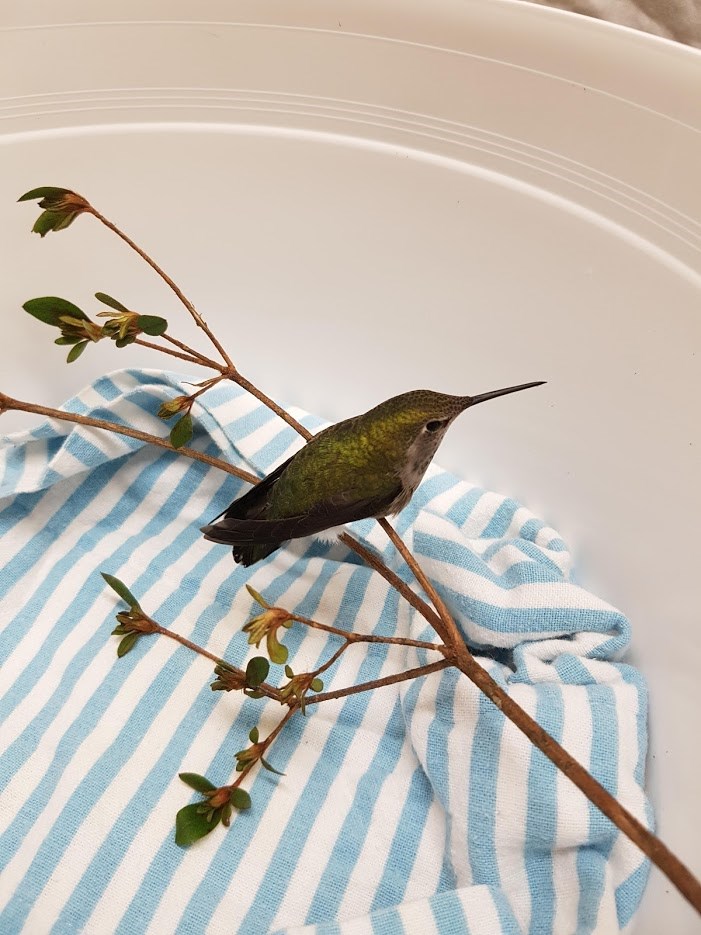Frozen feeders are threatening the survival of hummingbirds that have made the Lower Mainland and the Tri-Cities their home in recent years.
The BC Wildlife Rescue is calling for action after taking into into care a large number of starving hummingbirds.
Many of them are suffering from low blood sugar because they don’t have access to the nectar they need to survive, the organization says.
“The good-willed intention of humans to provide sustenance during winter encourage hummingbirds to forego their natural migration instincts and becomes a death knell for these beautiful, fragile birds when the hummingbird feeders freeze and the animals do not have a ready food source,” notes the animal welfare agency in a press release this week.
Making sure feeders don’t freeze in this cold weather is key to the birds’ survival and one way to do that is to alternate two feeders when temperatures drop towards zero.
Simply replace the one that froze overnight with one that is warm and fluid in the morning before you head to work, the agency suggests.
“Right now, hummingbirds have no other food source. They are dependent on these feeders to survive this weather. While bird feeders are a popular way to interact with wildlife in our backyards, knowing how to maintain them in freezing weather will save lives,” noted Janelle Stephenson, hospital manager.
Tomorrow, Thursday, BC Wildlife Rescue will discuss the current birds in care and ask people to share the love with their local wildlife.
Here in the Tri-Cities, large numbers of Anna’s Hummingbirds have been spotted during the annual Christmas Bird Count, a sign that the birds are extending their range.
In 2016, for example, 28 Anna’s Hummingbirds were spotted, that number increased to 73 in 2017 and to 115 this winter.
Victoria Otton of the Burke Mountain Naturalists supports any effort to ensure the survival of the hummingbirds. Although the birds do feed on insects they can find in tree bark in addition to the nectar, ensuring a bountiful supply of food is important, Otton said.
Otton also said she used to switch out her feeders but now uses a feeder warmer.



